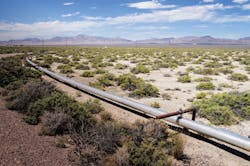Energy reform in Mexico
What are the primary concerns for investors?
José Antonio Prado Carranza, Holland & Knight LLP, Mexico City
For all of us who have worked in Mexico's energy sector over the years, the approval of a broad-spectrum energy reform, such as the one recently passed by the Mexican Congress, has been a positive and encouraging development. For years, each federal administration tried to pass an energy reform law or insisted on creating new constructs that always posed a risk of being challenged on constitutional grounds.
There were years of debate over the Multiple Services Contracts, New Execution Models, and the Comprehensive Duct Maintenance Contracts, legal constructs covered by the 27th constitutional article that at some point could be questioned and inhibited the participation of important players in the market by making them feel that the legality of their investments was vulnerable. This resulted, on the majority of occasions, in Pemex having to make do with small players or associated entrepreneurial companies that did not contribute the desired quality, technology, or results.
It is important that this substantive legislative step to strengthen the national energy sector was made at a constitutional level since there is no doubt, in this case, that the norm is of the highest level and will allow increased legal security and certainty for investors who decide to invest and consequently, risk their capital in the Mexican energy sector. At the end of the day, the current administration will have the huge responsibility of integrating and administering the approved constitutional models, and under the secondary legislation that is dictated, take the greatest advantage for the benefit of the nation of a powerful constitutional reform that has great possibilities of stimulating a competitive and efficient hydrocarbon and electric power market for Mexico.
The modalities of contracting and compensation
Independent of the range and flexibility of the concepts related to the Contracting Models mentioned in Temporary Article Four of the Reforms Decree, such as services, shared profits, or production, and licenses to carry out, on behalf of the nation, general hydrocarbon exploration and extraction activities; investors in this type of activity are concerned about and focus on the formulas that will determine the compensation and/or payments that the Mexican state guarantees to pay in the case of successful projects. Oil contracts pose a high risk of failure with regards to projected extraction due to various natural accidents. Nevertheless, the legal and environmental responsibility always remains.
The secondary legislation will have to delineate, in an attractive and equitable way, the risks and formulas that should apply to the different compensations to be received and contributions to be defrayed. This will be the toughest battle for the actors that will participate in the creation of secondary laws, especially in the case of those that will determine the percentage derived from profits or production, as well as in the compensation that private companies will have to pay for the onerous transmission of hydrocarbons once they are extracted from below ground and fall under the contractual rule of licenses. The oil exploration and exploitation business is complex in and of itself, and considering the level of complexity of risk in the field, the formulas will need to allow for considerable variances.
The rights to report and/or register oil projects in Mexico
According to Temporary Article Five of the Reforms Decree, both state-owned production companies as well as private entities that enter into a contract with the state or with its companies, can report for accounting and financial purposes, the corresponding contracts and expected benefits, as long as it is stated that the hydrocarbons below ground belong to the nation. This form of contract registration and expected benefits will be reviewed in detail by the large global public companies that engage in oil field development and hydrocarbon exploitation.
In the majority of countries where these companies have investments, they hold concessions or even property over the hydrocarbons to be explored and exploited during large periods of time. The secondary Mexican legislation will have to explore even further the concept of "Expected Benefits" and its impact on the potential accounting and fiscal records filed in global stock markets by national and foreign investors.
Legal security and certainty for private energy infrastructure
Highlighting the activities related to the exploration for and extraction of hydrocarbons, among others, in the Eighth Temporary Article of the Reforms Decree has generated a high level of expectation due their strategic nature. The construction of energy infrastructure in the country has resulted in a bottleneck in the last few years. Few federal government projects have been completed in the projected timeframe. The long and tortuous expropriation processes, the social problems, and the lack of safety in some areas of the country, must be addressed and resolved as soon as possible, relying on better legislation to do so.
Investors will be looking for new judicial alternatives within the laws that are to be created in order to provide legal certainty and security for projects that they develop from the perspective of private investors and developers. The construction, maintenance, and operation of oil pipelines, refinery ducts, petrochemicals, storage centers, and the processing, treatment, and logistics will need to have the best tools at their disposal so that these tasks can be carried out in a timely and efficient manner.
About the author
José Antonio Prado Carranza, a partner with Holland & Knight in Mexico City, has more than 15 years of experience working in the energy sector representing Mexican state-owned entities and energy-related corporations. Most recently, he served as general counsel for the Comisión Federal de Electricidad (CFE). Previously, he was legal chief compliance and internal affairs officer for Pemex. He also served as general counsel for the hydrocarbons section at Mexico's Ministry of Energy. Prior positions include: general counsel for Luz y Fuerza del Centra; general counsel for Mexico and Latin America for Koch Industries and Invista; general counsel for contracts and corporate affairs for PEMEX; and senior associate for public bids, infrastructure, and energy at Deloitte and Touche-Tomathsu. Prado participated in the implementation and policymaking of the 2008 energy reforms in Mexico and was part of the executive branch's legal team that represented Mexico's president before the Supreme Court of Mexico on the constitutional challenge against Pemex laws and enacted regulations.


